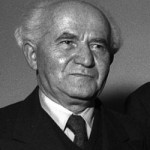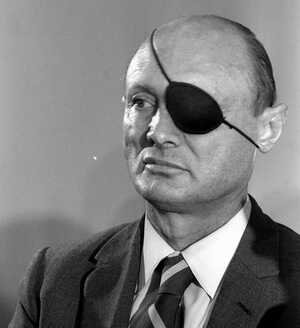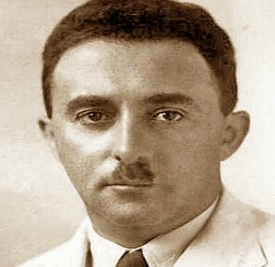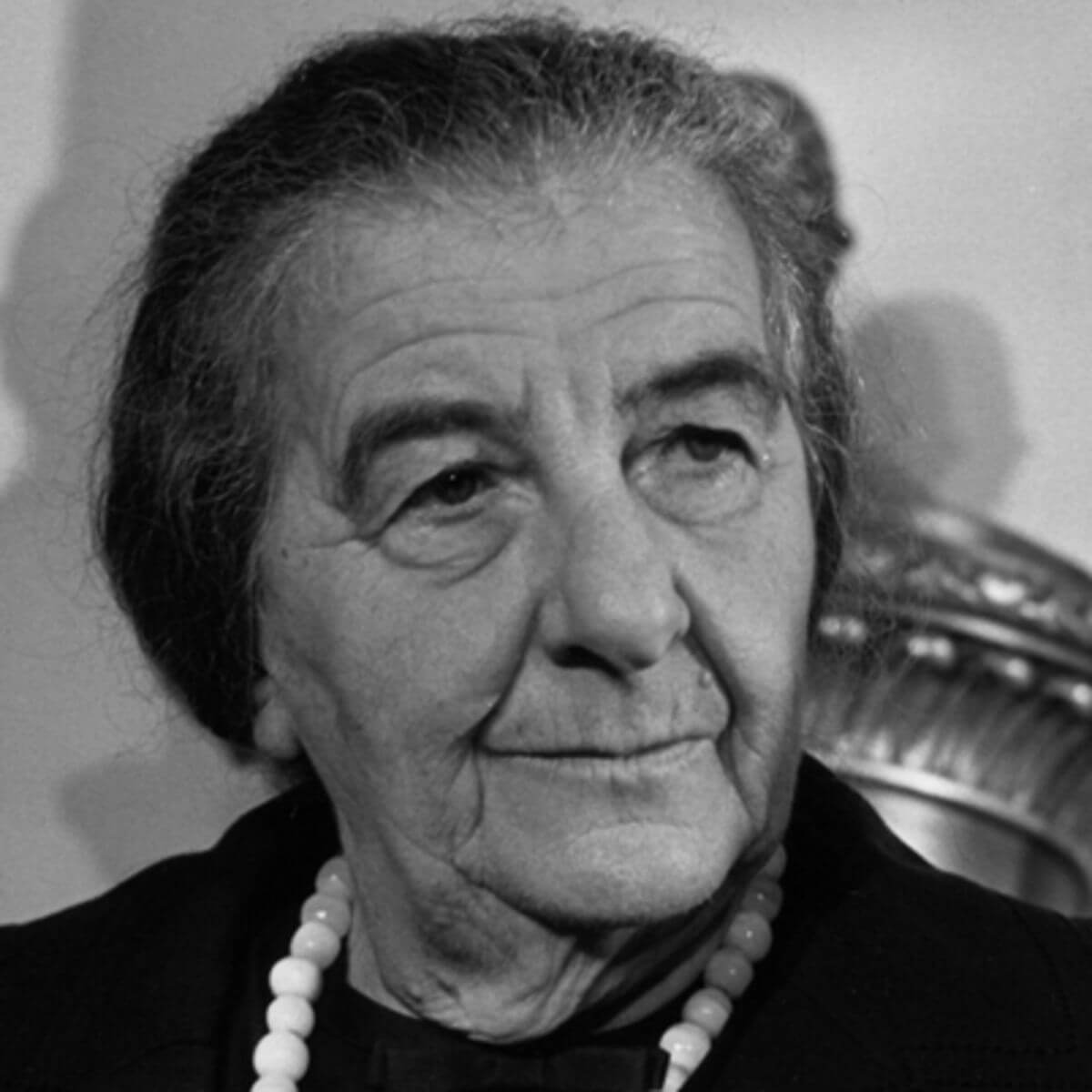ד.1 | The issue of the Israeli prisoners in Syria
During the prime minister’s visit to Washington in early November 1973, she asked Secretary of State Kissinger to convey to the Syrians Israel’s proposal to allow the residents of the enclave to return and to evacuate two outposts on Mt Hermon in exchange for the prisoners. (See Golda-Kissinger conversation, 3/11/1973, A 7075/1)
A 7075/1
Israel demands from Syria to receive the list of prisoners, to allow a visit by the Red Cross and to exchange the wounded prisoners on a reciprocal basis. Israel proposes that, in exchange for the release of prisoners, it would allow the Syrian citizens of the enclave under its control to return to their homes and transfer to the UN the outposts on Mt. Hermon that were captured in 1973 beyond the ceasefire lines, but not the Hermon outpost captured in 1967. All the Syrian prisoners would be released.
- Summary of a meeting between Michel Convers, the representative of the Red Cross in Israel, and Mordechai Kidron, at the Ministry of Foreign Affairs; November 23, 1973
MFA 6807/5
After congratulations on the completion of the prisoner exchange with Egypt, Convers asks about the situation of the Israeli prisoners in Syria. Kidron elaborates on the Syrian response to the Israeli proposal through various channels and their demand for an Israeli withdrawal. This “clearly implies that the Syrians will not separate the humanitarian issue from the political issue.” According to Convers, the solution is “a major [package] deal.”
3 . Mordechai Gazit, Director General of the Prime Minister’s Office, Jerusalem, to Simcha Dinitz, Israel Ambassador in Washington; November 26, 1973 (2 telegrams)
A 7024/10
The issue of the prisoners in Syria is a major obstacle to Israel’s participation in the peace conference in Geneva. Unless the list is received, there will be pressure on the government not only not to participate in talks with Syria, but even not to attend the conference at all. “The reports about the murders [of prisoners] upset the public and rightly so.”
4. Sinai Rom, the UN Department, Foreign Ministry, Jerusalem, to Mordechai Kidron, the Israeli Representation in Geneva; 16 December 1973
MFA 6807/5
A summary of a meeting between the foreign minister, Abba Eban, and a group of parents of Israeli prisoners in Syria: their request to meet Kissinger during his stay in Israel, efforts by the Americans, the Soviets and Egypt to to influence the Syrians to give the list of prisoners.
MFA 6823/5
Israel will participate in the formal opening of the conference but will not hold any substantive discussion with Syria if the list of prisoners is not received. The United States will show understanding for its position.
5 . Prime Minister Golda Meir, Jerusalem, to the families of the captured pilots in Syria; December 25, 1973
A 7084/6
The Israeli government’s position regarding participation in the Geneva Conference; the efforts of the Americans to help obtain the list of prisoners
- Excerpts from the government meeting; Jerusalem, January 17, 1974
At a meeting held on the eve of the signing of the Separation of Forces Agreement with Egypt, Minister of Religion Zerach Warhaftig asks why Israel needs an agreement with Syria. Prime Minister Meir and Chief of Staff David Elazar reply that Israel needs to end the shooting incidents on the front and to get back the prisoners. Warhaftig fears that very few Israeli prisoners are still alive and that an agreement with the Syrians will be one-sided.
The first stage of negotiations
7 . Summary of a meeting with Secretary of State Henry Kissinger at Ben-Gurion Airport, January 20, 1974
A 7069/7
A record by Mordechai Gazit of a meeting with the secretary on his return from Damascus, in which Ministers Yigal Allon and Abba Eban, Simcha Dinitz and others participated. Kissinger described his meeting with President Assad, who attacked Egyptian President Sadat and listed the conditions that Assad set for the separation of forces agreement with Israel. He said that the prisoners are well treated. In Kissinger’s opinion it is important to enter into negotiations with Syria to relieve the pressure on Sadat. Allon rejected the maps that Assad sent through Kissinger and said he would report to the prime minister. They also discussed a possible separation of forces with Jordan and the implementation of the agreement with Egypt.
8 . Mordechai Gazit, Director-General of the Prime Minister’s Office, Jerusalem, to Simcha Dinitz, Israel Ambassador in Washington; January 23, 1974
A 7059/9
A message from the prime minister that her reaction to the ideas brought by the secretary from Damascus is negative. Israel refuses to enter into a discussion or consider a date for it until there is movement on the subject of the prisoners.
A 7069/7
Dinitz delivers an oral message that the Egyptian president sent to Golda Meir and Dayan through Kissinger regarding the importance of a separation agreement with Syria for Egypt. He hopes that Israel will make an effort to reach an acceptable settlement with Syria so that Egypt, Israel and the United States can fulfill their common goal. An arrangement would serve the interests of both countries.
A 7059/9
The prime minister’s answer to Sadat’s message. Israel is ready to enter into talks with Syria on the separation of forces at any moment. The question of the fate of the Israeli prisoners in Syria is the obstacle to opening the talks. In view of the suffering of the family members, at the very least Syria must hand over a list of prisoners and allow a visit by representatives of the Red Cross. Israel is ready for a prisoner exchange with Syria.
11 . Mordechai Gazit, Director General of the Prime Minister’s Office, Jerusalem to Simcha Dinitz, Israel Ambassador in Washington; February 11, 1974
A 7059/9
The prime minister (who appears under the code name Malachi) was informed about the plan to transfer the list of prisoners in Syria to Kissinger (Naftali) and to guarantee a Red Cross visit to them. After the move is completed, Israel will agree to hand over the main points of its separation of forces plan to Kissinger. Until the visits are made, Israel will not forward any proposals.
12 . Mordechai Gazit, Director General of the Prime Minister’s Office, Jerusalem to Simcha Dinitz, Israel Ambassador in Washington; February 11, 1974
A 7059/9
The prime minister’s opposition to Kissinger (Naftali)’s attempt to link the lifting of the oil embargo on the United States and receiving the lists of Israeli POWs in Syria.
- Excerpts from a government meeting; February 24, 1974
Link to the full record of the meeting, pp. 16-78
Chief of Staff David Elazar’s remarks on the IDF’s plan for separation of forces within the enclave in Syria; Minister Shlomo Hillel’s warning about the difficulties and dangers of the plan; Yigal Allon presents the advantages of an agreement.
14 . Summary of a conversation between Prime Minister Golda Meir and Secretary of State Henry Kissinger; Jerusalem; February 27, 1974
A 7069/8
Kissinger gave the prime minister the list of prisoners in Syria, which included 65 names. Everyone is alive and well and the Red Cross visits will take place soon. The prime minister handed the list to the chief of staff. Kissinger reported on the international situation, the positions of the Syrians and Assad’s demand for an Israeli withdrawal beyond the October 6, 1973 line (the “Purple Line”). Meir rejected this claim completely. Kissinger’s assessment that the prospects for another settlement with the Egyptians are good, however the Syrians will demand withdrawal from the Golan Heights, which is impossible. He is inclined to postpone the negotiations to Washington, and in the meantime the oil embargo will be lifted. Assad refuses to discuss the situation of the Syrian Jews.
15. Conversation between Prime Minister Golda Meir and Secretary of State Henry Kissinger; Jerusalem; March 1, 1974
A 7069/8
Sadat’s position regarding negotiations with the Syrians. For the first time he appeared in civilian dress for the meeting with Kissinger. Golda Meir’s claim that any withdrawal beyond the Purple Line in the Golan Heights is “dynamite” in Israel.
16. Excerpts from a government meeting; Jerusalem, March 3, 1974
Link to the full record of the meeting
In response to a question from Warhaftig, Dayan explains the social and economic factors pressurizing Israel to reach a separation of forces agreement with Syria as soon as possible. Objectively, perhaps the situation puts more pressure on the Syrians, but in practice Assad does not care about 15,000 villagers who were driven from their homes and live as refugees. Israel is in great need of American aid – “In my opinion, we are under a lot of pressure”.




